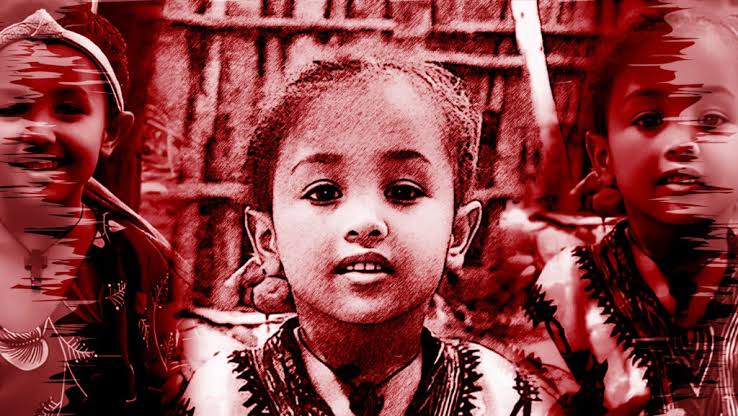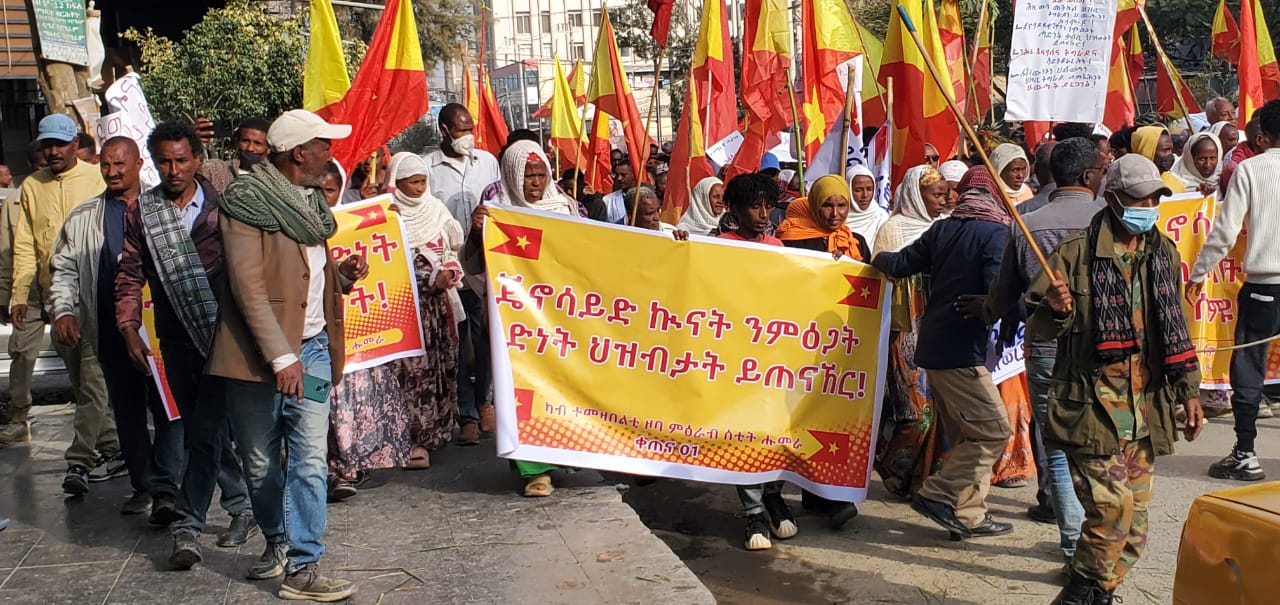By HANA-MARIAM TESHOME
Gender-based violence (GBV) and domestic abuse remain critical issues in Ethiopia, affecting countless women and girls.
Despite various legal frameworks and international commitments aimed at promoting gender equality and protecting women’s rights, societal norms and systemic barriers have perpetuated a culture of violence and impunity.
Historical Context and Cultural Norms
Ethiopia’s history and cultural practices play a significant role in the persistence of gender-based violence.
Traditional beliefs often prioritize patriarchal norms, viewing women as subordinate to men.
These cultural attitudes contribute to societal acceptance of violence against women, framing it as a private matter rather than a public concern.
Many women grow up in environments where abuse is normalized, making it difficult to seek help or report incidents.
Manifestations of Gender-Based Violence
Gender-based violence in Ethiopia manifests in various forms, including physical, emotional, sexual, and economic abuse.
Domestic violence is prevalent, with many women facing physical assaults from intimate partners.
Reports indicate that a significant percentage of women have experienced violence at the hands of their spouses.
Furthermore, practices such as child marriage and female genital mutilation (FGM) exacerbate vulnerabilities, leading to long-term physical and psychological harm.
The alarming increase in sexual violence is particularly concerning. Rape, often accompanied by societal stigma and shame, is underreported due to fear of retribution or lack of faith in the justice system.
The tragic case of Heven Awot, a seven-year-old girl raped and brutally murdered by her family’s landlord in August 2023, has become a symbol of the crisis in handling sexual violence in the country.
Heven’s story exemplifies the systemic failures in protecting vulnerable children and highlights the urgent need for reform in societal attitudes and legal responses.
Similarly, the recent murder of Lidya Alem, who was killed just four days after her wedding in October 2024, reveals the alarming reality of domestic violence.
Lidya was hanged by her husband, a shocking act that underscores the deadly risks many women face even in supposed safe spaces.
This incident serves as a grim reminder of the dangers inherent in domestic relationships and the critical need for protective measures.
Another tragic example is Birtukan Taddese, a recent graduate from Haramaya University, who was brutally stabbed to death on September 30, 2024, in Addis Ababa.
Birtukan was targeted by a man who had persistently pursued her.
Her untimely death underscores the need for stricter laws and better enforcement to protect women from such predatory behavior.
Furthermore, the kidnapping and subsequent murder of Kebron Deribew, a ten-year-old girl in Bahir Dar, adds to the tragic toll of violence against young girls.
After two months of police investigations, Kebron’s murder was confirmed, highlighting the dangers children face and the inadequacies of the justice system in preventing such crimes.
Systemic Failures and Lack of Support
The Ethiopian justice system struggles to address Gender-based violence effectively. While laws exist, their implementation is often inadequate.
Victims frequently encounter obstacles in accessing justice, including lack of resources, biased law enforcement, and societal stigma.
Many women are discouraged from reporting abuses, fearing further victimization or disbelief.
Organizations that advocate for women’s rights, such as The Ministry of Women and Social Affairs and Networks of Ethiopian Women’s Association (NEWA) often lack the necessary resources and influence to enact change.
Consequences of Gender-Based Violence
The consequences of gender-based violence extend beyond immediate physical harm.
Survivors often face long-term psychological effects, including depression, anxiety, and post-traumatic stress disorder.
The cycle of violence impacts not only the victims but also their families and communities, perpetuating a cycle of abuse across generations.
Additionally, the economic impact is significant; women who experience violence may find it challenging to participate fully in the workforce, leading to broader economic implications for society.
A Path Forward
Addressing gender-based violence in Ethiopia requires a multifaceted approach.
First and foremost, there must be a cultural shift that challenges and transforms patriarchal norms.
Education and awareness campaigns can empower women and communities to recognize their rights and seek help when necessary.
Engaging men as allies in this fight is crucial; they must be part of the conversation to change attitudes and behaviors.
Strengthening the legal framework is also essential. The government must ensure the effective enforcement of existing laws and establish mechanisms for accountability.
Access to justice for survivors should be prioritized, with resources allocated to training law enforcement and judicial officials on handling Gender-based violence cases sensitively and effectively.
Moreover, community-based support systems are vital.
Counseling services should be readily available for survivors, offering them a safe space to heal and rebuild their lives.
Collaboration between government agencies, non-governmental organizations, and community leaders can foster a supportive environment for survivors.
Conclusion
Gender-based violence and domestic abuse are critical challenges facing Ethiopia today.
Despite significant strides toward gender equality, much work remains to create a society where women and girls can live free from violence and fear.
The tragic stories of Heven Awot, Lidya Alem, Birtukan Taddese, and Kebron Deribew must serve as a wake-up call for Ethiopia.
By addressing cultural norms, strengthening legal frameworks, and supporting survivors, Ethiopia can begin to dismantle the structures that enable gender-based violence, fostering a safer and more equitable future for all its citizens.



